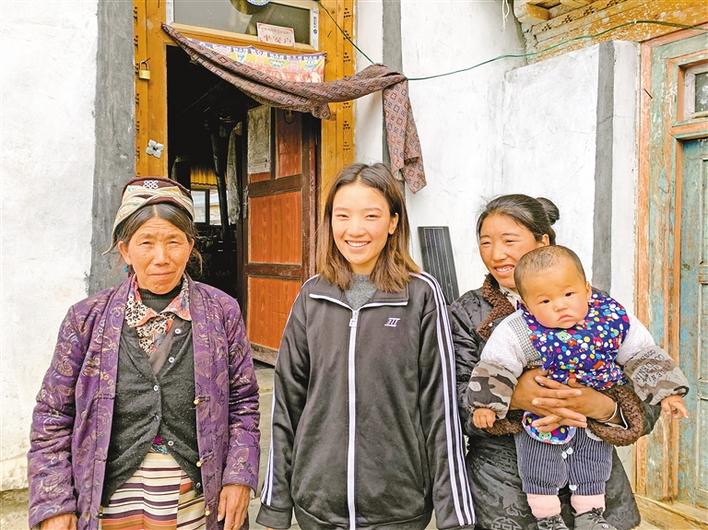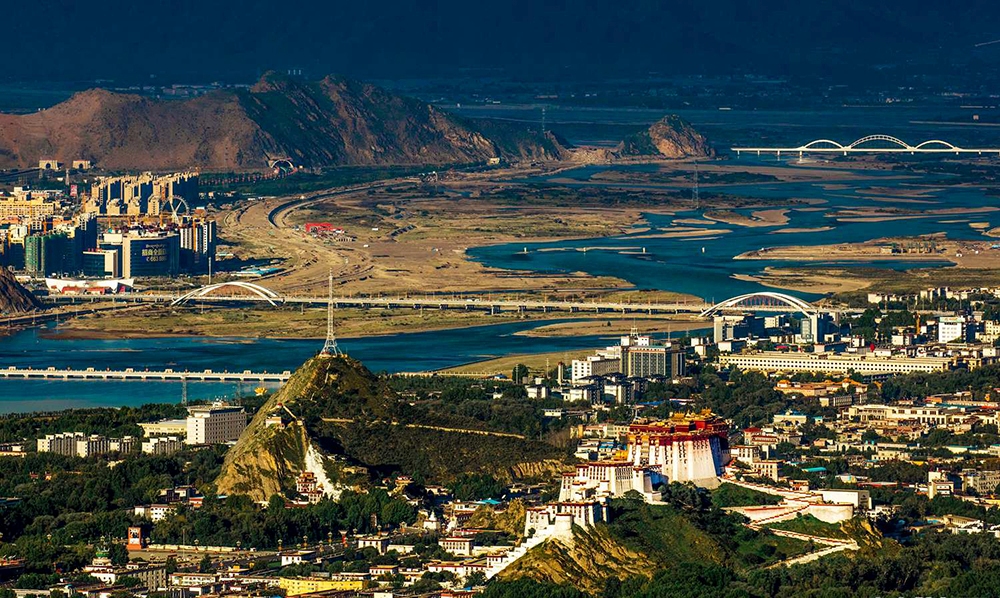Tibet: relocation creates better lives
Tibet is a land of miracles. And it was also home to China's only provincial-level concentrated area of extreme poverty.
In 2012, China launched a full-scale battle against poverty. Since 2015, Tibet has relocated nearly 300,000 farmers and herders from uninhabitable areas, creating better lives for them all.
In the early morning, Pu Tsering started grazing his six yaks on a mountain slope standing 4,700 meters above sea level.
The high altitude and coldness on the Qinghai-Tibet Plateau are unfriendly to most creatures, but have made an ideal habitat for yaks.
Nagqu is located in the hinterland of Qinghai-Tibet Plateau. Ninety percent of its 500,000 people work in animal husbandry. Forty percent of the yaks in Tibet are bred here.
In 2017, a state-owned company started a husbandry base called Gar Dhe in Kaima village, Nagqu city. The base covers an area of over 660 hectares, using an investment of over 100 million yuan (about 15.5 million USD).
Sixteen registered low-income households from seven villages moved to a relocation site built near the base, with 56 relocated herdsmen finding jobs near their new homes. Pu Tsering is one of them.
Meanwhile, each village set up its own cooperative to facilitate yak breeding.
Now the Gar Dhe base collects milk from 15,000 herders in 134 cooperatives, paying local residents 25 million yuan (3.54 million USD).
Pu Tsering has turned from a herder to a worker. Alongside seven colleagues, he takes care of more than 600 yaks, a job that he's very good at.
In 2020, Tibet launched a project to build over 600 employment bases across Tibet to offer jobs for more than 60,000 relocated herders and farmers.
For Yumyang, relocation means more. Yangbajing Town is a popular tourist resort in Tibet known for its hot springs.
Three years ago, a new village was born here.
In 2017, 150 two-story Tibetan-style houses were built in Caiqutang for relocated families from Nagqu, Ali and Qamdo.
Among nearly 1,000 relocation sites in Tibet, Caiqutang is one built to receive people suffering from illness, as 204 of the village's 683 residents suffered from rheumatoid arthritis.
In Tibet, people have to struggle with high altitude, coldness and a lack of oxygen. Rheumatism is a common ailment among locals.
Yumyang's hometown is Nyima County of Nagqu city, standing close to 5,000 meters above sea level.
He has suffered from rheumatism for nearly 20 years. Unable to work or graze, life is even harder for his family.
In the Tibetan language, "Caiqutang" means "saline-alkali soil." Its rich geothermal resources have made it known far and wide.
Different from other relocation sites, Caiqutang is equipped with special medical facilities. In addition, doctors from the Tibetan Traditional Hospital also come here regularly to provide treatment for patients.
After moving to Caiqutang, Yumyang takes a bath in a hot spring every day to treat his rheumatism. Here, hot springs have been introduced into every household.
Here in Caiqutang, Yumyang works at the village's sheep raising cooperative. His daughter also landed a job at a hot spring resort. The family now has a yearly income of 80,000 yuan (about 11,760 USD).
Three years later, patients in Caiqutang got rid of their wheelchairs thanks to quality treatment.
Pu Tsering and his fellow villagers have been allotted dividends from Gar Dhe's revenue from planting artificial pastures.
In just two years, the number of yaks that Pu Tsering grazes has increased from six to 600. His family's annual income has grown from 9,000 yuan to 90,000 yuan (about 13,900 USD).
Since 2015, Tibet has built 965 relocation sites and relocated 266,000 people.
By the end of 2019, Tibet had lifted 628,000 people out of poverty and delisted 74 county-level areas from the poverty list.
In mid-October, Tibet eradicated absolute poverty, with the average annual net income of poor residents rising from about 1,500 yuan (about 230 USD) in 2015 to more than 9,300 yuan (about 1,440 USD) in 2019.
Tibet Stories

Happy life of Tsering Yuzhen’s family
Every time it rained, the house leaked. In 2016, the government helped us renovate and expan...

